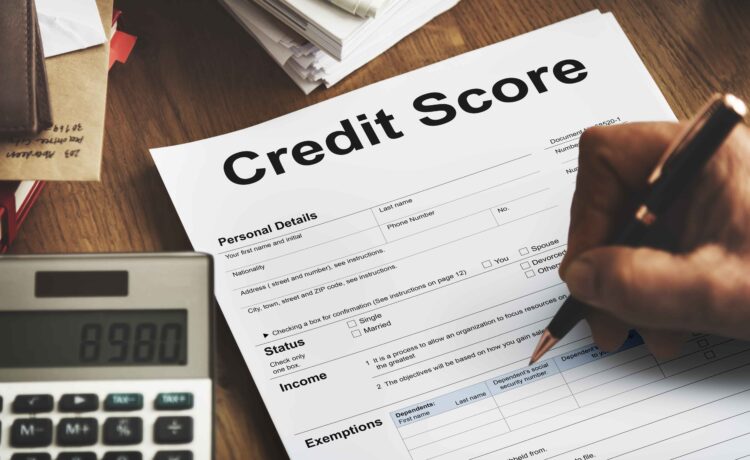Although you rarely think about your credit score, it might affect your life in more ways than you can imagine. Understanding how a credit card works and how it impacts your credit history is crucial for maintaining a healthy credit score and your overall financial life.
What is a Credit Score?
A credit score is a three-digit number that ranges between 300 and 900. CIBIL (Credit Information Bureau India Limited) generates this score for you to help you get a clear picture of your financial health. A credit score shows how well you can repay loans. Banks and financial companies look at it to decide if they should approve your easy loan application. It’s important because it tells lenders how reliable you are with credit. A higher score means you’re less likely to miss payments, making lenders more likely to give you a loan.
What is a Good Credit Score?
Different financial institutions tend to interpret credit scores differently. A higher credit score shows you as a responsible borrower. Thus, it makes it easier for you to get quick loans with good terms and conditions. However, a lower credit score reduces your chances of getting a loan.
Here is a general review of credit scores at different levels:
- Poor: Under 580
- Fair: 580-669
- Good: 670-739
- Very good: 740-799
- Exceptional: More than 799
What are the Factors Affecting Your Credit Score?
Your credit score showcases your financial stability and responsibility with credit management. Take a look at the top 5 factors affecting your credit score:
- Your Payment History: Before giving you a loan. Lenders will assess your credit history to check whether you have paid your loans and credit bills on time, in case of late payment, how much were you late to pay? Public records like debt settlements, charge-offs, foreclosures, bankruptcies, and lawsuits can damage your credit score.
- Credit Utilisation Ratio/debts Owed: The credit utilisation ratio measures the amount of debt you have against your total available credit limit. Low is better for this ratio. You should always pay on time and use your credit a little.
- Tenure of Credit History: The average age of your accounts is found by taking the age of your oldest account and your newest account into consideration.
- New Credit: The number of new credit accounts you create also affects your credit score. Your credit report will include information like the number of new accounts you created recently and the time each of them was created.
- Credit Mix: Credit mix is the variety of credit accounts you have, like credit cards, mortgages, and instalment loans. While your credit score does consider the number of accounts you hold, the impact of your credit mix on your score is quite small.
How Does Your Credit Score Affect Your Financial Future?
Here are the following ways credit score can impact your financial future:
- Faster Loan Processing: You will get faster approval for your loan processing when your lenders consider your consumer’s profile to be low-risk or you have an excellent credit score.
- Better Chances of Future Loan Approvals: Checking your credit report is the first thing you should do whenever you apply for a new loan to any lender. A good to excellent credit score indicates you are a low-risk borrower.
- Better Loan Terms: A credit score not only impacts your ability to make new loans but also deeply impacts the cost of your loans. The lenders will be more interested in offering you loans when you have a good credit score. Ultimately, this gives you more power in terms of negotiating loan terms like the rate of interest, an extension of loan tenure, processing fee or any other fees and charges with the lenders.
- Employment Eligibility: Before finalising yourself as an employee, many employers check the credit score of candidates. This is done especially for positions in the financial sector. The employer can consider your profile high-risk in case your credit report shows delayed or missed payments.
- Peace of Mind: Paying your bills and credit cards on time shows good financial discipline and management. This way, you can achieve peace of mind. Delayed payments can lead to financial stress and impact your health and relationships.
- Attractive Interest Rate: Banks and financial institutions may offer loans with lower interest rates when you have a good credit score.
- More Potential to Save: When you repay all your dues timely, you can avoid late payment charges and avail of loans at better loan terms.
- Visa Application: Some countries prefer to check income reports and credit scores before providing you with a visa. So, a good credit score definitely improves your chances of getting visa approval.
- Quick Access to High-end Credit Cards: When you have a good credit score, you become eligible to get high-end cards offering the maximum reward points and cashback offers. These cards already have a higher credit limit. Also, these cards have tie-ups with several merchants, thus letting you buy your desired product or service at a discounted price.
How to Boost Your Credit Score?
Here are a few ways you can boost your credit score:
- Maintain a proper credit history
- Check your credit report
- Set payment reminders
- Customise your credit limit
- Pay all your bills on time
- Ask for higher credit limits
- Pick a longer tenure when taking a loan
- Pay Down Revolving Account Balances
- Use 30% or less of your available credit
- Consider consolidating your debt
- Track your progress with credit monitoring
- Become an authorised user
Conclusion
Are you ready to take complete control of your finances? A good credit score is important because it increases your chances of getting loans with better interest rates. The two key factors in your credit report are paying bills on time and using less credit. By knowing what affects your credit score, you can take steps to improve it.













